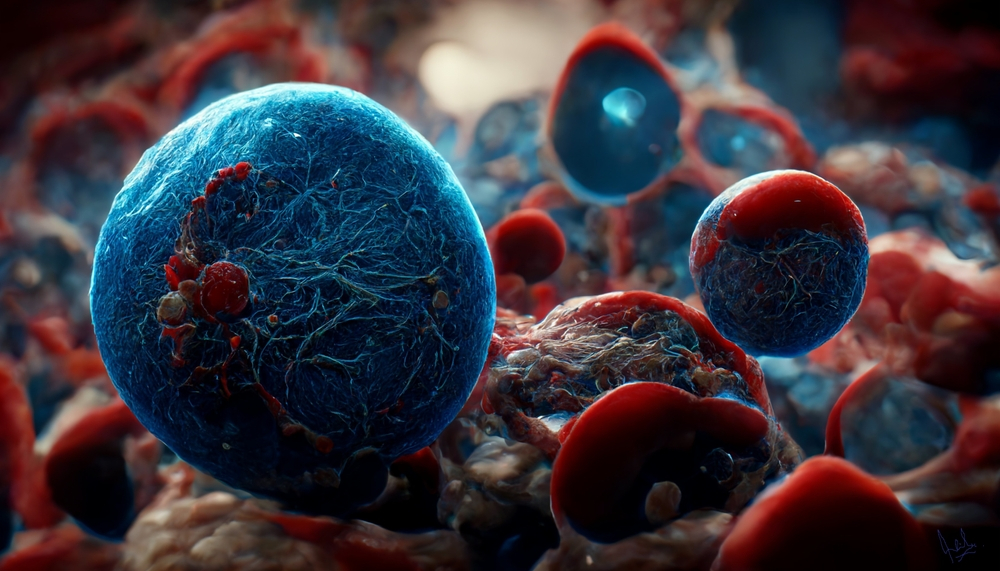
Hematopoietic Stem Cell Therapy: A Miracle For Fanconi Anemia
Fanconi Anemia (FA) is a rare genetic disorder that causes gradual failure of bone marrow functioning. Since the bone marrow in FA patients cannot produce healthy blood cells and platelets, it increases the risk of developing blood cancers and other blood-related disorders. Clinical studies and research on hematopoietic stem cell treatment between 2000 and 2018 have shown improved outcomes in Fanconi Anemia patients.
This blog post explores the advances in bone marrow transplantation with hematopoietic stem cells and how they have improved symptoms and relieved patients.
Table of Contents:
Fanconi Anemia and Its Symptoms
The center of the bone marrow in the human body contains spongy tissues that produce hematopoietic (blood) cells, including red blood cells, white blood cells, and platelets. Fanconi Anemia is a genetic disease characterized by bone marrow failure, resulting in lower blood cell production. FA patients have physical deformities that impact their appearance and organ function. This inherited condition is passed down through families, and symptoms generally start appearing at birth or in the early childhood phase between 5 and 10 years.
The most common symptoms of FA are:
- Fatigue or extreme tiredness – Patients may find difficulty carrying out essential daily tasks.
- Pale skin color
- Headaches
- Frequent infections due to low white blood cell count
- Nose or gum bleeding
- Abnormal function of the heart, lungs, and digestive tract
- Easy bruising
Read Also: An In-depth Look into Stem Cell or Bone Marrow Transplant
What Causes Fanconi Anemia?
Fanconi Anemia is inherited by receiving one copy of an abnormal FA gene from each parent. The FA genes repair damaged DNA throughout life and help the body function properly. Abnormal genes cannot protect against DNA damage and don’t repair routine DNA, leading to uncontrolled cell growth or death.
Abnormal cell death results in physical deformities in patients due to reduced amounts of hematopoietic (blood) cells. Whereas abnormal cell growth increases the risk of hematological malignancies, such as acute myeloid leukemia and other blood-related cancers.
The goal of Stem Cell Therapy For FA Treatment
Traditional and short-term treatments for FA involve using medicines to treat the symptoms without addressing the cause. These medications typically provide short-term relief by allowing the bone marrow to produce more blood cells for a limited time.
Stem cell therapy aims to provide lasting results by targeting the root cause of anemia. The long-term goal of hematopoietic stem cell transplantation is to replace the damaged bone marrow cells with healthy cells that will produce the required amount of all types of blood cells (mainly red blood cells, white blood cells, and platelets) on their own.
The doctors evaluate the patient’s age and physical condition to approve the therapy. After the transplant, the patient’s body must make enough new blood cells.
Read Also: Discover Revolutionary Stem Cell Therapy in Beverly Hills, California: Experience Healing Beyond Borders
The Hematopoietic Stem Cell Treatment Process
Stem cell therapy starts with stem cell harvesting, in which healthy stem cells from a donor’s bone marrow are collected and implanted in the patient’s body. Doctors try to find a donor whose stem cells match as closely as possible with the patient. HLA-matched (Human Leukocyte Antigen) related family donors, such as siblings, show maximum success, while unrelated donors can result in poor patient outcomes.
After collection, the stem cells are concentrated with solutions to prepare injections for the treatments. The stem cells are administered to the patient intravenously. Once the new cells enter the bloodstream, they travel throughout to reach the bone marrow to start healing and make new blood cells.
Clinical trials indicate the chances of success for hematopoietic stem cell transplantation are higher in younger people who have less or no severe existing health issues and have received fewer blood transfusions in the past. Also, those who receive stem cells from their brother or sister have shown better clinical outcomes.
Results of Hematopoietic Stem Cell Therapy For Fanconi Anemia
Doctors of reputed institutions studied patients, particularly children, who underwent stem cell therapy for Fanconi Anemia from 2000 to 2018. Normal hematopoiesis was restored in most patients, gradually increasing blood cell production. The red and white blood cell count and platelet count improved significantly.
As a result of increased levels of three types of blood cell counts, patients started experiencing improvement in their health condition in the following ways.
- An increase in energy levels with no more fatigue
- Lower infections and better capabilities to fight diseases
- Improved function of the heart, lungs, and digestive system
- Enhanced physical appearance
- Increased strength in the bones
Read Also: Healing Power Of Stem Cell Therapy: A Comprehensive Guide
Conclusion
Fanconi Anemia is genomic instability inherited from parents, leading to bone marrow failure. Conventional treatments include oral medications, gene therapy, blood transfusions, and synthetic growth factors. However, over the past few decades, hematopoietic stem cell treatment has shown vast potential in regenerating healthy blood cells and alleviating symptoms of progressive bone marrow failures. Outcomes in FA patients have improved significantly after successful cell transplantation, and their risks of blood cancer and other blood-related disorders have been reduced. With further advancements in regenerative medicine, stem cell therapy is expected to become a standard treatment for Fanconi Anemia, enhancing patients’ quality of life.
Best Clinic For Stem Cell Therapy In Mexico
Life Altering Stem Cell Therapy Institute is a long-established stem cell center in Mexico renowned for its advanced therapies, which attract patients worldwide. The clinic’s state-of-the-art facilities and team of medical experts provide life-changing stem cell therapy for various medical conditions, from autoimmune diseases to neurodegenerative disorders, rheumatoid arthritis to anti-aging, and more. We focus on utilizing human umbilical cord tissue-derived mesenchymal stem cells to prepare personalized therapies for our patients.
